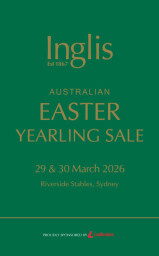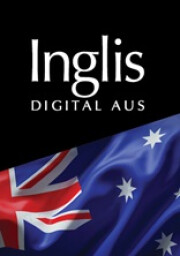7th Jan 2010

The Land - Virginia Harvey - Thursday, 7 January 2009
A DELAYED aftershock from the 2007 spring equine influenza crisis has rippled through the start of the multi-million dollar new year yearling sales’ season as slightly fewer young horses are booked for sale than normal.
However, this week’s Gold Coast Yearling Sale line-up shows the ban on the movements of mares and sires at the peak of the equine influenza epidemic apparently had only minimal impact on conception rates during the breeding season two years ago.
Numbers booked for sale at the big Gold Coast event are down to 1236 yearlings catalogued for six selling sess-ions, compared with 1327 last year.
Sydney’s two-day William Inglis and Son Classic Yearling Sale to be held later this month will have a catalogue of 522, down from 607 last year.
There were 4730 yearlings publicly catalogued at the nation’s major yearling auctions in the 2008-09 season, principally conducted by Magic Millions Bloodstock or William Inglis and Son, collectively netting $244.73 million.
William Inglis and Son managing director, Mark Webster, said even though there would be about 13 per cent fewer yearlings to sell, it was a great year to get involved in the Thoroughbred industry.
“Thoroughbreds are coming off a low, after bloodstock values dropped 35pc last year, and I don’t think we’re going to recover that 35pc this year,” Mr Webster said.
“For anybody thinking of getting into horse racing, or looking to get back in, I think it will be a good year to buy.
“I doubt if we will jump back to the 20pc growth we achieved a few years ago, but a steady marketplace with possibly some modest growth in yearling prices is hoped for.”
While North America and Europe were still struggling from the economic downturn, Asian markets remained buoyant, Mr Webster said.
A small offering of about 23 was snapped up quickly at last month’s International Hong Kong Sale for two- and three-year-olds conducted by the Hong Kong Jockey Club at Sha Tin, making big profits on their yearling values.
Many had been bought as yearlings in Australia.
“Clearly that was a positive signal. If they had more horses to sell they would have been sold,” Mr Webster said.
Managing director of Magic Millions Bloodstock, David Chester, echoed the sentiments.
“I think the strength at the Magic Millions will be from overseas buyers, particularly from Hong Kong, as they have orders to fill,” Mr Chester said.
But he said he’d have to wait to see how bullish those orders were, especially as the strength of the Australian dollar was a slight concern.
“I believe they will have the same amount of money to spend, but when it is converted into Australian dollars it will be worth about half of what it was at last year’s sale.
“But we (Magic Millions) are hoping to hold the $130,000 we averaged at last year’s sale (select session) – any improvement on that is a bonus.”
Mr Chester said seven of the past 10 winners in the Golden Slipper – the world’s richest juvenile event, worth $3m to the winner – were bought at the January Gold Coast sale.
“It’s a pretty amazing record considering it is not the top sale in the country,” he said.
In a few months’ time William Inglis and Son’s Australian Easter Yearling Sale will sell 674 yearlings – the cream of the 2007 foal crop – at Newmarket, where last year’s Easter yearling sales averaged $240,000.
-thumb.jpg)
8, 9, 10 February 2026
-thumb.jpg)
1, 2, 3 March 2026

29, 30 March 2026

30 January - 4 February 2026

30 January - 4 February 2026

19 April 2026